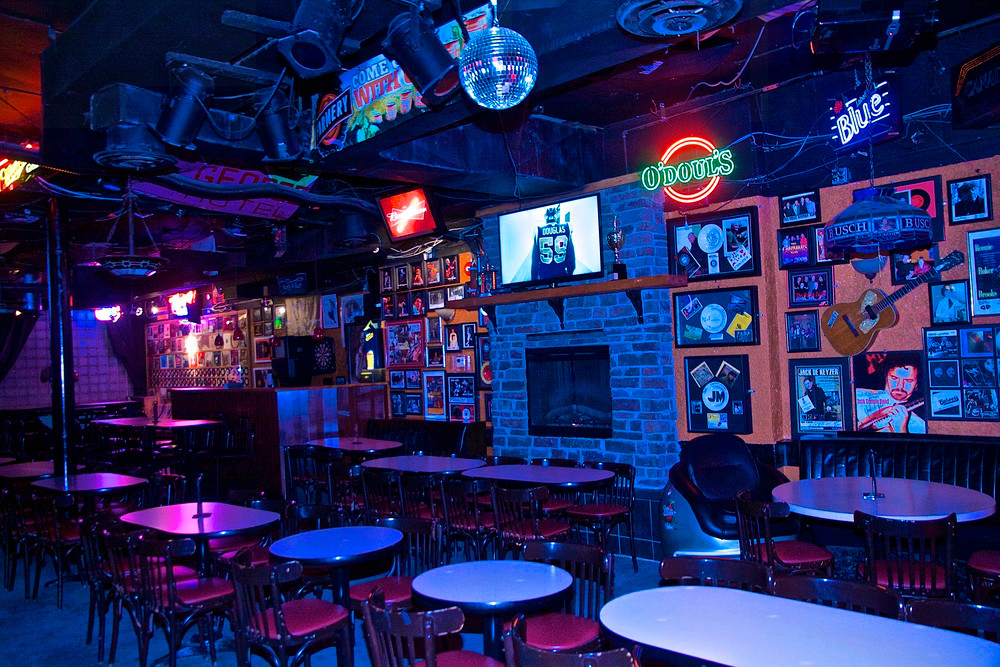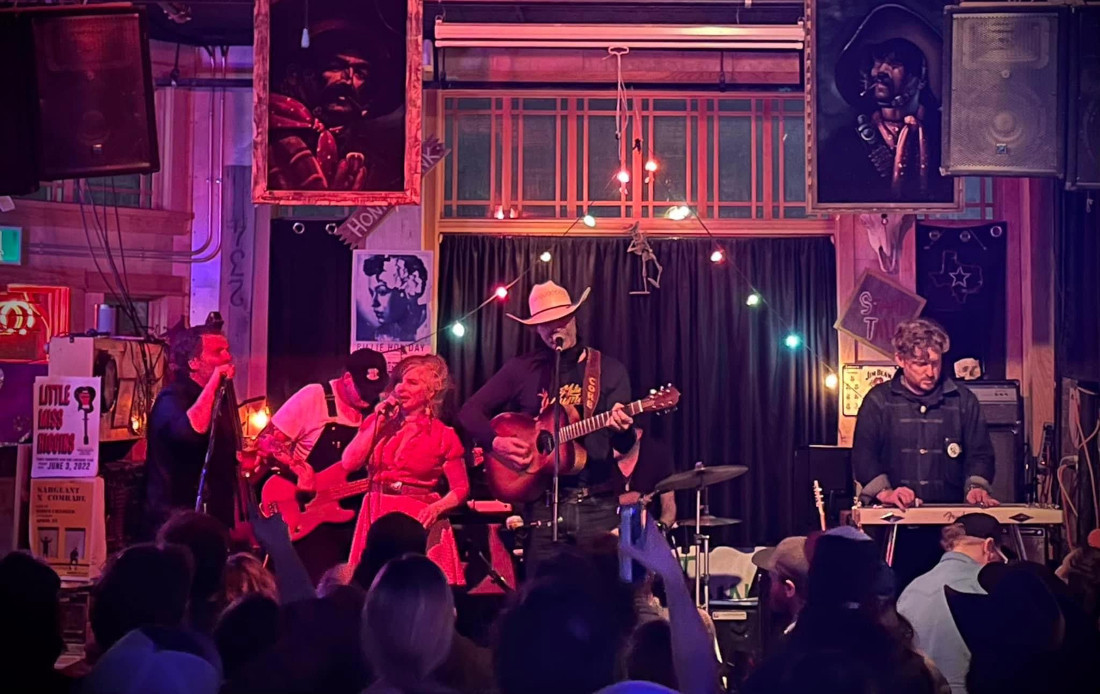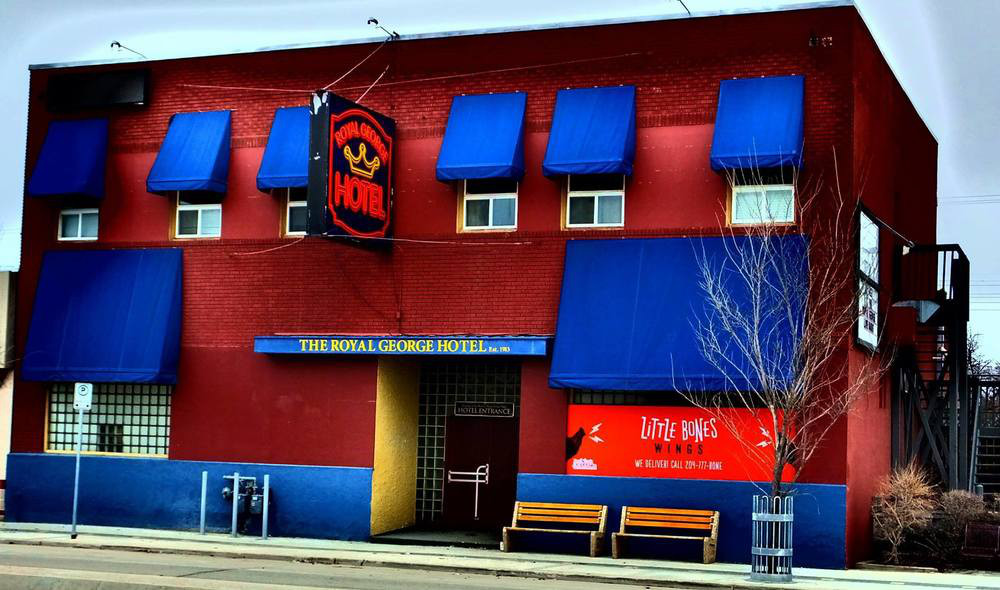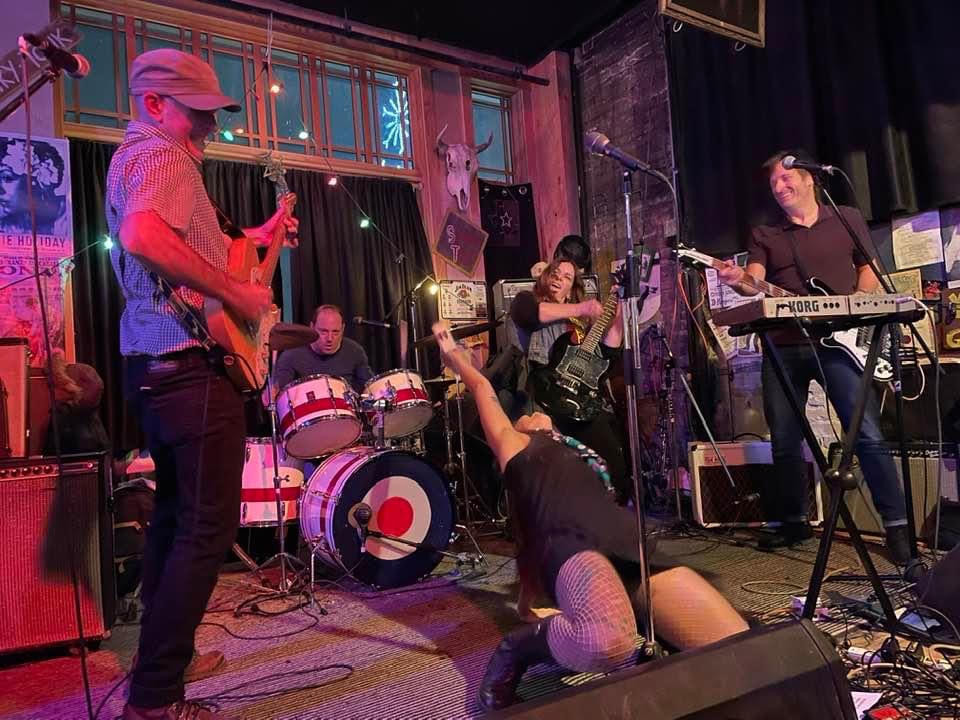You gotta see it to believe it
Venues across Winnipeg keep the honky-tonk tradition alive
In the 1960s and ’70s, country and blues music dominated the Main Street strip in Winnipeg. Legend has it that during this time, musicians played six nights a week to sold-out crowds of people dancing, singing and delighting in a combination of blues and country hits new and old.
Around the turn of the millennium, the appetite for live country and blues bands dissipated. Venues went from hosting live acts seven nights a week to five nights, then four and, eventually, none at all.
The declining trajectory of interest in live country and blues music in Winnipeg is not the end of the story. Through tireless plucking, booking and picking, a coalition of stalwarts, newcomers and revivalists keep the blood of the Winnipeg country and blues scene flowing.
Prairie players define a sound
Winnipeg is home to a rich history of raucous folk music. The city’s earliest entertainers laid an ideal foundation for the flourishing of country and blues. Calloused feet and blistered fingers characterized early popular-music traditions among the Red River settlements. The Manitoban sound, led by the Red River Métis, was characterized by the cacophony of bows dragged across fiddle strings and the percussive rhythm of spoons, drums and feet moving to a jig.
In the 1870s, racial segregation sent many Indigenous musicians away from Winnipeg. For those who remained, the music of Métis fiddlers established itself in barrooms and public dance halls, while the piano became the dominant sound of the gentleman clubs frequented by the primarily white gentry.
In the early 20th century, country music, a style developed out of African, European and Indigenous musical traditions in the American South, along with its more rhythmically oriented cousin, blues, began to establish itself in Western Canada.
The themes of loneliness, freedom and tradition endemic to country music spoke to the experience of many living in this area. At the same time, the sonic blueprints of country, especially the subgenre bluegrass, were similar to that of the fiddle music already established in the Prairies.
By mid-century, Winnipeggers listened to country and blues music led by Indigenous musicians like Billy Joe Green and Errol ‘C-Weed’ Ranville. Acts played Monday to Saturday in the variety of hotels along Winnipeg’s Main Street.
As country music made way for rock and roll and other genres that reflected the taste of audiences further disconnected from rural living, Winnipeg’s country scene slowly began to dwindle and left Main Street, finding its home in select bars, hotels and legions across the city.
Champions of a lost era
Although the popularity of live country and blues is not what it once was, some venues still continue the musical traditions of Winnipeg’s past. One example is Transcona’s Royal George Hotel, owned by Greg Pester.
Pester has orbited the hotel business his whole life and jumped at the opportunity to buy the Royal George in 2000.
“It wasn’t in great shape when we got it,” he says. “We turned it into quite a music venue.”
Pester was there when the country scene was alive in Winnipeg. He started in his mom’s band when he was 17 years old.
“We played six nights a week. It was pretty great back then,” Pester says. “The scene has changed a lot. Not as many people have full bands. (There are) a lot more solo acts, but there’s still a few of us left.”
When live country and blues music waned in popularity, the Royal George Hotel became a preservation site for these artists and a haven as audiences along Main Street looked elsewhere for their entertainment.
The Royal George’s focus on preservation is engraved on their walls. They are adorned with memorabilia from artists who have passed through over the years, including Chicago’s Nellie ‘Tiger’ Travis, Texas’ Randy McAllister and Regina’s Jack Semple.
“There’s a lot of history here. It’s like the Winnipeg music history here,” Pester says.
In 2022, the Royal George was awarded the Country Venue of the Year by the Manitoba Country Music Association. To this day, the venue boasts the fact that they still host live music seven nights a week, which begins with Sunday-night country and a meat draw.
“I think country music is coming back,” Pester says. “There’s a lot of new acts and young people coming and enjoying Georgy Jones and Merle Haggard stuff ... (There are) still a lot of fans of the old-style country.”
The Royal George isn’t alone in its mission to preserve the history of country and blues in Winnipeg. Times Change(d) High and Lonesome Club, located along the once-forgotten Main Street strip, is managed by “janitor/president” John Scoles, who first encountered the venue after working for years as a musician on the West Coast and in Texas.
At the time, the venue was on a path to closure, but Scoles, who was working as a bartender, saw profound potential in the club.
“I wanted to do something in Winnipeg that didn’t exist but I knew could exist,” Scoles says. “So we pulled out the sacred butter knife, scraped all the drywall off the wall and exposed the brick and wooden floorboards ... exposed things the way they should and oughta be.”
The revamped facade was not just brick-deep. Scoles worked to create a venue that put artists, patrons and staff before profits. Times Change(d) positions itself as a site for Winnipeg musicians, country, blues, rock and beyond.
“We have done things in a not-typical business way. We make sure to take care of the musicians, the patrons and staff,” Scoles says. “We try to have a character here, which almost shouldn’t work as well as it has, but it did.”
Times Change(d) received the Western Canadian Music Award for Impact in Music for its efforts.
Scoles humbly sees his role as “a caretaker of the honky-tonk tradition.” Like at the Royal George, the Times Change(d) walls are a mausoleum of Winnipeg music history.
“It’s very much still connected to the music from before the turn of the millennium,” Scoles says. “This is one of the few places where you can be directly connected to the music that has come before yours.”
It ain’t over yet
While these venues stand as homes to Winnipeg’s musical history, they are also breeding grounds for new artists who can use the spaces to play with the living legends of Winnipeg’s past.
“I think it is still amazing how healthy and creative the Winnipeg music community is,” Scoles says. “The Winnipeg music community is renowned and really every bit as strong as it ever was.”
One of the younger faces who has found his place in the Winnipeg country scene is Dan Russell. Russell, who works as an upholsterer by day, plays pedal steel with The Darren Lavallee Band, Andrew Neville and The Poor Choices and a litany of other bands in the Winnipeg country scene.
Russell got into country music through a combination of his interest and exposure from his grandparents.
“A lot of people my age will say that their grandparents got them into it,” Russell says.
Russell got his first glimpse of Winnipeg’s country music scene when he witnessed his grandparents’ friend Wayne Link jamming with several local musicians. Later, Russell went back to Link, who had been building pedal steels under Linkon since the late ’60s, to buy a pedal steel. The two made fast friends.
Russell holds a mental Rolodex of Winnipeg country artists playing and hanging out with musicians new and old at the Royal George, Times Change(d) and artists who tour reserves in Northern Manitoba. Russell says he cherishes the opportunity to play with the musicians who lived through country music’s heyday in Winnipeg.
“Because they played so much back then, they had so much on-the-job experience,” he says. “It’s kinda hard to replace that experience, playing six nights a week.”
Performers like Russell, who just “want to facilitate a good time,” are examples of the enduring nature of country music in the city. Contemporary country and blues shows provide an opportunity for Winnipeggers to have a good time while being steeped in the city’s rich history.
“It’s just danceable, honest, fun music,” Russell says. “It just suits having a good time really well.”
Published in Volume 77, Number 17 of The Uniter (February 2, 2023)











